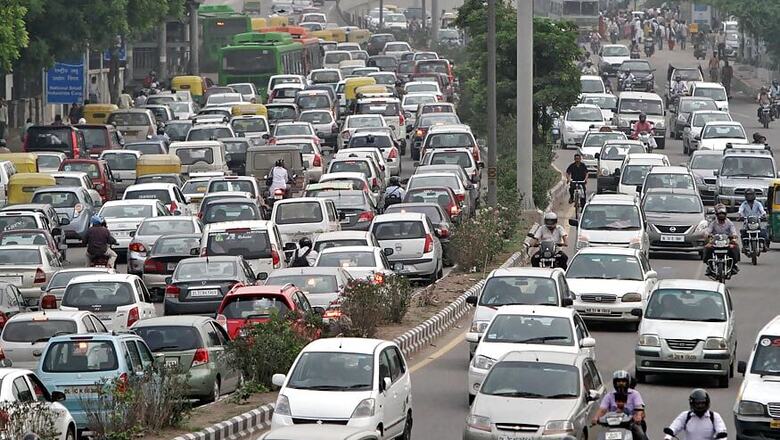
views
The Delhi government on Tuesday came out with its draft electric vehicles policy, targeting 25 percent of all new vehicle registrations to be electric by 2023 through subsidy for such autos, rickshaws and two wheelers among others.
It also recommends strengthening infrastructure to provide battery charging access within 3 km range from anywhere in Delhi while additional fees on non-electric vehicles will fund the bulk of corpus created to incentivise the adoption of electric vehicles. The draft policy posted on Transport department website has been put in the public domain for people to file their objections and suggestions.
Vote Now! Tech And Auto Awards 2018 is here. Click here to vote for your favourite gadgets and cars.
Delhi Transport Minister Kailash Gahlot said around 30 percent of particulate pollution in winter is caused by vehicles in the city and adopting environmental friendly vehicles will improve the air quality.
"We have drafted a comprehensive policy for Delhi with an aim to make the city a leader in adoption of electric vehicles. We believe that going electric and breathing better are two sides of the same coin, he said in a statement.
The draft policy acknowledges that a new approach is required to kick-start EV adoption in Delhi and seeks to put in place several measures that address key hurdles, besides targeting 25 percent of all new vehicle registrations to be electric by 2023.
Endeavouring to battle high levels of air pollution in the city, the government has appointed a consultant to procure 1000 e-buses. Currently, the trial of two such buses is being carried out on different routes.
The policy provides for up to Rs 22,000 subsidy on purchase of e-two wheelers to ensure cost of commuting comes close to petrol-driven two wheelers. Electric two-wheeler taxis will be allowed to provide last mile connectivity.
For e-cabs, it suggests full waiver in registration and cashback of Rs 10 to commuters.
The policy proposes open permit system for e-autos in Delhi with subsidy up to Rs 12,500 and five percent interest subvention to promote these vehicles. It also recommends cashback of Rs 10 to commuters using e-autos.
For e-rickshaws, the policy recommends subsidy up to Rs 20,000 and five percent interest subvention.















Comments
0 comment